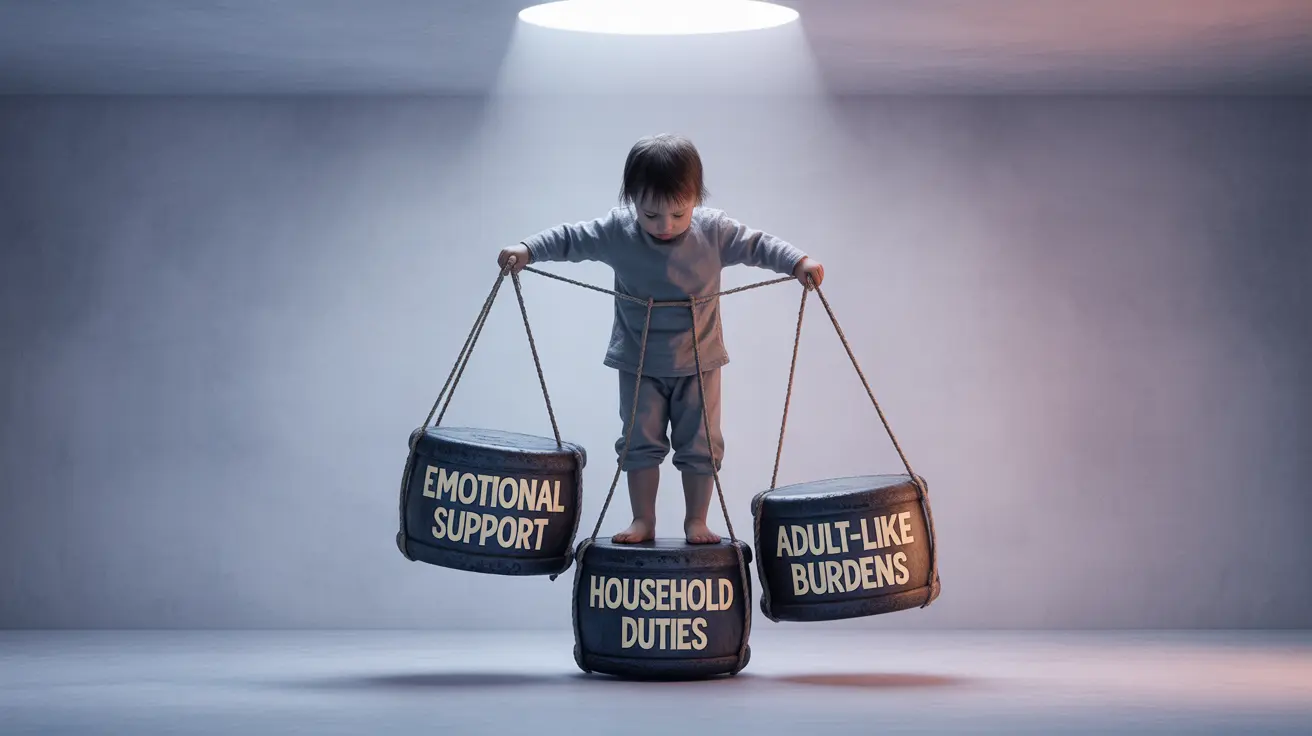Being a parentified child occurs when young people are forced to take on adult responsibilities and emotional burdens that exceed their developmental stage. This role reversal between parent and child can have lasting effects on mental health, relationships, and personal development. Understanding the signs and impact of parentification is crucial for breaking harmful patterns and promoting healthy family dynamics.
While some level of responsibility can foster independence and maturity, parentification crosses a boundary that can be detrimental to a child's wellbeing. This comprehensive guide explores the signs of parentification, its long-term effects, and paths toward healing.
Recognizing the Signs of Parentification
Parentified children often display distinctive behavioral patterns and emotional responses that set them apart from peers their age. Common indicators include:
- Excessive worry about family members' wellbeing
- Taking on significant household responsibilities
- Providing emotional support to parents
- Caring for younger siblings beyond normal helping
- Difficulty engaging in age-appropriate activities
- Acting more mature than their years
- Struggling to express their own needs
The Impact on Mental and Emotional Development
When children become parentified, their emotional and psychological development can be significantly affected. These children often experience:
- Chronic anxiety and hypervigilance
- Difficulty forming healthy relationships
- Perfectionist tendencies
- Challenges with setting boundaries
- Struggles with self-identity
- Depression and burnout
- Complex trauma responses
Common Causes of Parentification
Several factors can lead to parentification within families:
- Parental mental illness or substance abuse
- Family dysfunction or instability
- Single-parent households with limited support
- Cultural expectations and family dynamics
- Parent's own history of trauma
- Chronic illness in the family
- Economic hardship
Breaking the Cycle Through Healing
Recovery from parentification is possible through various therapeutic approaches and self-awareness work. Key elements of healing include:
- Individual therapy focused on trauma recovery
- Learning to set healthy boundaries
- Developing self-care practices
- Processing childhood experiences
- Building healthy relationships
- Reconnecting with one's own needs and desires
- Understanding it wasn't their fault
Frequently Asked Questions
What are common signs that a child is experiencing parentification?
Common signs include taking on adult responsibilities like caring for siblings or parents, providing emotional support beyond their years, excessive worry about family matters, and struggling to engage in age-appropriate activities. These children often appear unusually mature and responsible for their age.
How does parentification affect a child's emotional and mental health long term?
Long-term effects can include anxiety, depression, difficulty with boundaries, perfectionism, relationship challenges, and struggles with self-identity. Parentified children may develop complex trauma responses and have trouble prioritizing their own needs in adulthood.
What causes a child to become parentified in a family?
Parentification often occurs due to family dysfunction, parental mental illness, substance abuse, single-parent situations, cultural expectations, chronic illness, or economic hardship. Sometimes, parents who were themselves parentified may unknowingly continue the pattern.
How can therapy help someone who grew up as a parentified child?
Therapy can help by providing a safe space to process childhood experiences, develop healthy boundaries, work through trauma, build self-awareness, and learn proper self-care. Therapeutic support can assist in breaking harmful patterns and developing healthier relationships.
What is the difference between normal childhood responsibilities and harmful parentification?
Normal responsibilities help children develop age-appropriate skills and independence while maintaining their role as children. Parentification occurs when children take on adult-level responsibilities, emotional burdens, or caretaking roles that interfere with normal childhood development and exceed their developmental capabilities.




